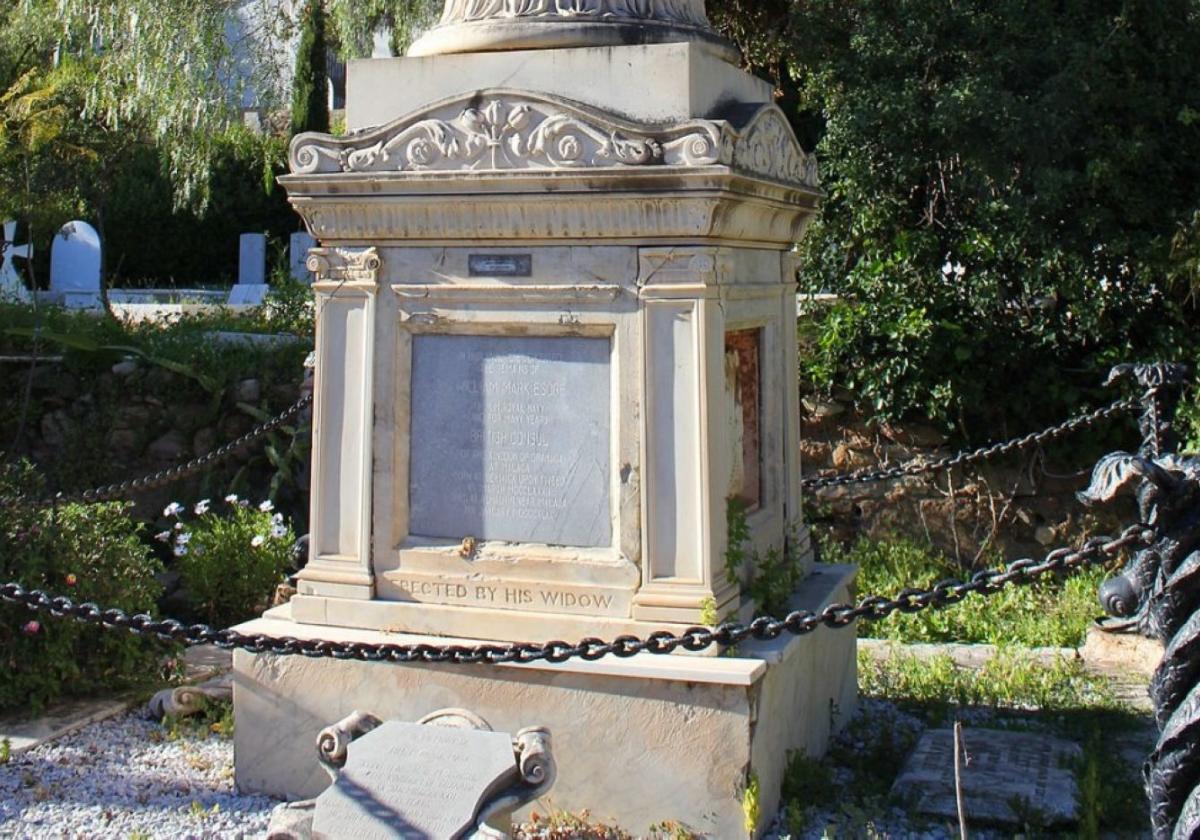

Sections
Highlight

Tony Bryant
Malaga
Friday, 27 December 2024, 13:37
Born in Berwick-upon-Tweed in 1782, William Mark is fondly remembered in Malaga as the British consul and governor of the British colony in southern Spain, although he is probably most admired for being the founder of the English cemetery in the capital of the Costa del Sol.
Opened in 1831, after Mark championed a campaign to secure the first Anglican Protestant burial ground in Spain, the cemetery has a funerary monument in his honour. However, it was not until more than 150 years after he died that a crypt beneath this monument containing his body and those of several family members, including his wife, was discovered by accident.
Until the cemetery was built, the death of a Protestant in Spain caused much concern, since they could not be buried in a Catholic cemetery. Instead, bodies were buried in an upright position on the beach, which deterred many British from choosing Malaga as a place to live, or enjoy winter holidays: Mark's tireless efforts ensured the British would have a dignified burial.
Born into poverty-stricken family, Mark joined the navy at the age of 18, where, three years later, he met Admiral Horacio Nelson, under whom he served. In 1808, he was posted to Gibraltar, where he met and married Emma Bedwell two years later. In 1816, Mark and his wife arrived in Malaga, which he described as a "second paradise", although he did not take up the post as consul until 1824
He served as consul until 1837, when he was succeeded by his son, William Penrose Mark. He died in 1849 at his home in Alhaurín el Grande, a town associated with another influential British resident, Hispanist Gerald Brenan.
On the day of his funeral in St George's church, which overlooks the city he loved, the English and American ships docked in the port flew their flags at half-mast in accordance with nautical custom to show a feeling of respect for the memory of important citizens.
Publicidad
Publicidad
Publicidad
Publicidad
Esta funcionalidad es exclusiva para suscriptores.
Reporta un error en esta noticia
Comentar es una ventaja exclusiva para registrados
¿Ya eres registrado?
Inicia sesiónNecesitas ser suscriptor para poder votar.